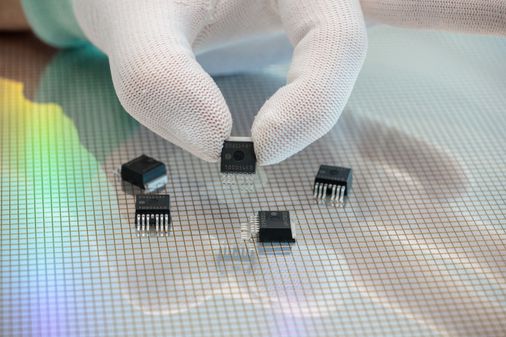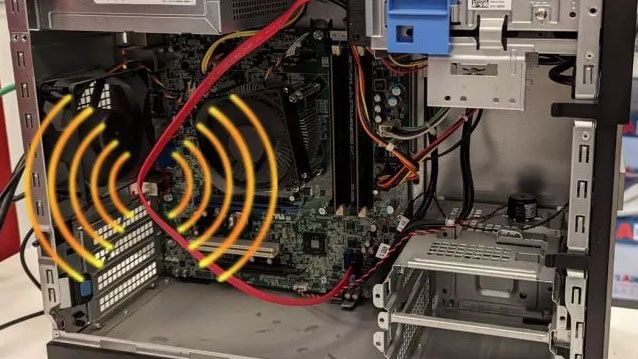Computer chips are vital to national security. US needs to make more of them on American soil.
As soon as Tuesday, the Senate could take up legislation that would pour $52 billion into chip research and incentives for building manufacturing plants in the United States. Lawmakers should approve the bill and get it to the president’s desk as soon as possible.
Big subsidies for a thriving industry can be difficult to swallow. But Congress really doesn’t have a choice. In China, Singapore, Taiwan, and Europe, governments are pouring massive sums into semiconductors. And if Washington doesn’t compete, the country’s shrinking share of semiconductor production could shrink even further. In 1990, 37 percent of the world’s chip-making capacity resided in the United States. Now it’s just 12 percent.
That’s a national security concern. Without a steady domestic supply of chips, our economy and our military prowess are put at real risk.
The House approved the semiconductor spending in February, tucking it into a larger package aimed at countering China’s growing economic and technological power. And the Senate passed a narrower version of the bill last year.
But the legislation has languished. And domestic manufacturers have put plans for new semiconductor plants on hold in places like Ohio and Texas while they wait on word from Congress.
Drag out the process too long, the companies have warned, and they’ll go overseas.
It’s not the $52 billion in research dollars and manufacturing incentives that has slowed passage of the broad economic competitiveness legislation that has been stalled in Congress for months. Among other things, Republicans have objected to parts of the House version that favor unionization and boost aid for workers displaced by offshoring.
Senate Majority Leader Chuck Schumer, eager for a victory before the midterm elections, appears willing to move on a slimmed-down bill that would pair the semiconductor subsidies with a tax credit from another bipartisan chip-manufacturing bill.
Some other elements of the larger economic competitiveness package may be tacked on, too, in what some lawmakers are calling a “chips-plus” bill. But it’s unclear which ones.
Several are…


